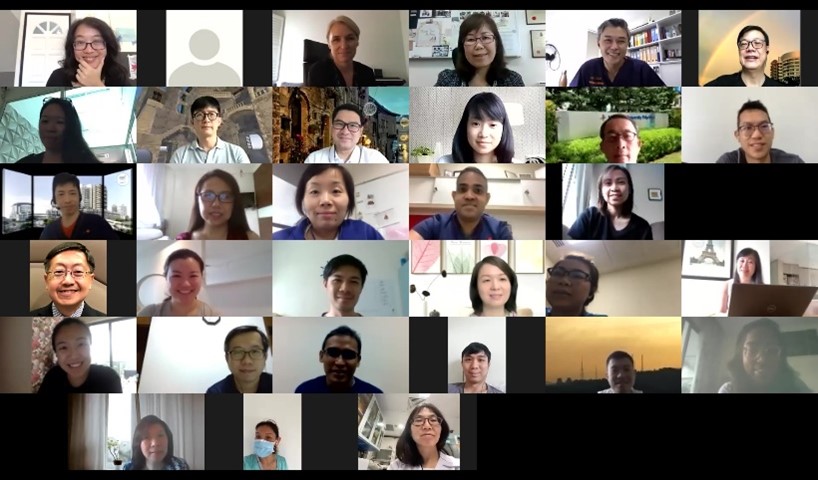VECTor Workshop
8 Aug 2020 & 4th Sept 2020
Behavioural and Implementation Science Interventions Faculty Workshop
Approach
In this 2 x 3.5 hour workshop, we will take participants through the stages of applying behavioural and implementation science to solve locally relevant problems for clinicians in Singapore.
This workshop will focus on the core skills needed for leaders and managers within the healthcare system in order to adopt an evidence-based approach to the design and deployment of interventions on the ground. Workshop participants will learn the underlying concepts of behavioural and implementation science and how to apply these to construct innovative solutions to a clinical practice and/or teaching problem, plan for and overcome implementation barriers, and understand the implications for the effectiveness of solutions after being undertaken and evaluated.
By the end of the workshop, participants will be equipped with the knowledge to:
(i) Identify the specific behaviour they want to change and the outcome of this change
(ii) Build an implementation team
(iii) Identify potential intervention strategies (i.e., design a feasible solution for the problem)
(iv) Identify barriers and facilitators to implementation of intervention strategies
(v) Develop an implementation plan addressing barriers and promoting facilitators
(vi) Manage the implemention, evaluation and adaptation of an intervention and implementation plan
Suggested Agenda as follows:
Day 1. Introducing Behavioural and Implementation Science (BIS)
28 Aug 2020, 8.30 am – 12.30 pm
| 08.30 – 08.50 | - Welcome Remarks by DyCE Chua Song Khim, Project Sponsor
- Opening Address by Dr Quek Lit Sin, Project Director
|
| 08.50 – 10.15 | Welcome and Introductions
BIS familiarisation Instructors will introduce fundamental behavioural and implementation science theories and present examples of how these have been applied to public policy, communications, and service delivery. Adapted Theoretical Domains Framework to intervention design and implementation Introduce the overarching framework to guide the application of behavioural and implementation science to our projects |
| Break | |
| 10.30 – 12.30 | Step 1. Identify the target behaviour to change the outcomes
Instructors will guide participants to identify specific target behaviours and outcomes based on importance and feasibility. Step 2. Engage with stakeholders and build implementation team Instructors will guide participants in selecting essential stakeholders and building an implementation team Step 3. Identify potential intervention strategies using principles of behavioral science Instructors will guide participants in selecting intervention/s targeting the behaviour/s and outcomes identified in Step 1. |
Day 2. Introducing Behavioural and Implementation Science (BIS)
4 Sep 2020, 8.30 am – 12.30 am
| 08.30 – 09.35 | Step 4. Identify barriers and facilitators to implementation of intervention stratgies
Instructors will introduce tools aimed at systematically identifying individual and organizational barriers to full implementation of interventions Drawing from the implementation science literature, participants will develop understanding common barriers to high quality implementation in a health setting and how to use these to inform the design of an implementation plan (Step 5) |
| Break | |
| 09.45 – 11.30 | Step 5. Develop implementation plan addressing barriers and promoting facilitators identified earlier
Instructors will guide participants to select evidence informed implementation strategies and develop an implementation plan which aims to overcome barriers and enhance facilitators identified in Step 4. Step 6. Implement and evaluate intervention and implementation plan Instructors will take participants through a Test/Learn/Adapt approach of trialing and experimentation Wrap up and Q&A |
| 11.30 - 1230 | - Data Governance & Protection in Project VECTor by Mr Chris Ng, NUHS Group Chief Data Governance & Data Protection Officer |

